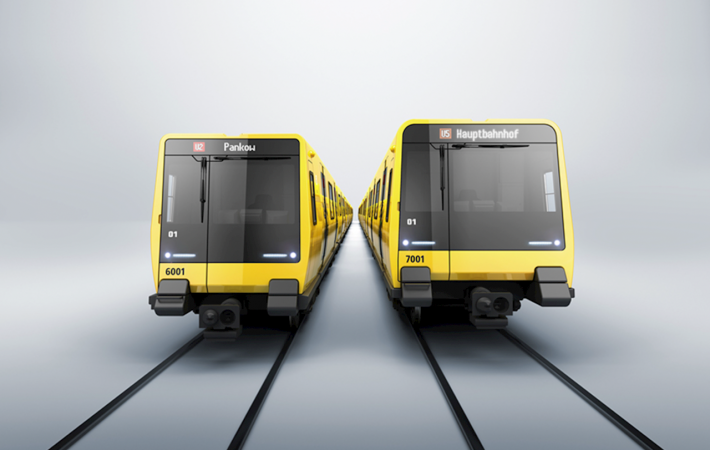DETROIT — A shark has emerged around one of the world’s biggest profit pools for U.S. automakers, as Chinese automaker BYD Auto expands its presence and portfolio with a pickup truck.
Without the branding of a car, the BYD Shark might be seen as an American-made product. In many ways, it looks like a small pickup truck from Ford Motor Co. The China-made truck bears a striking resemblance to the Ford Explorer and the popular F-150 — one of the Ford brand’s best-selling truck lines in the U.S. for 48 years.
As with BYD’s Seagull, a small all-electric hatchback that starts at just 69,800 yuan (less than $10,000), global automakers worry that Chinese competitors like Warren Buffett-backed BYD could flood their markets and undercut domestic production and vehicle prices, hurting their own auto industry.
BYD has not announced plans to sell the Shark in the U.S., but it has entered markets where GM, Ford and Toyota sell pickup trucks, including Australia, Brazil and Mexico.
In the U.S., pickup trucks are a staple for Detroit automakers, with millions of units sold each year. Pickups are also becoming increasingly important to Toyota in the U.S. and global markets.
“The importance of these products to manufacturers from a revenue perspective is in the franchise,” said Terry Woychowski, president of Caresoft Global’s automotive business and former chief engineer for GM’s full-size trucks. “There’s a lot of interest in this vehicle because of the market.”
Caresoft, an engineering benchmarking and consulting company, disassembled and inspected about 40 electric vehicles made in China by BYD, NIO and others.
The Michigan-based company digitally and physically analyzes every part of the car, from bolts and door locks to seats, engines and battery housings. The company then determines how its customers, mostly automakers and suppliers, can improve efficiency and reduce product costs.
Getting noticed
Automakers such as Ford and Toyota, which rely heavily on global sales of small pickup trucks, have taken notice of the BYD Shark.
“It’s a great product. Sales are good. They’re trying to sell it in large volumes in Mexico, but also localize it in Thailand,” Ford CEO Jim Farley told CNBC earlier this month. “If we want to be a global player in the pickup truck space, like we are now, we have to compete.”
While Ford’s F-150 dominates the United States, Toyota’s Hilux has been the best-selling truck outside North America for years. Toyota has sold 19.8 million Hilux trucks since its introduction in 1968, including a sales record of 851,000 in 2022.
Earlier this month, when asked about Chinese competitors, Toyota Motor Chairman Akio Toyoda said the company “needs to be ready to meet the global needs of the global market” regardless of the competition.
“We try to focus on the needs of each market and strive to be the best local automaker. That’s our strategy,” Toyota said at a media roundtable at the CES tech conference.
BYD reportedly exported more than 10,000 BYD Sharks in 2024. Sales are expected to increase in the future, especially as the company prepares to expand production.
BYD’s share of China’s auto exports has grown from 2% (less than 56,000 vehicles) in 2022 to 8% (350,500 vehicles) in 2024, according to Bank of America Securities.
Exports continue to help BYD achieve global sales growth, which will increase to about 4.3 million vehicles by 2024 from about 3 million vehicles a year ago. Wall Street analysts expect sales to continue to grow to about 5.5 million vehicles this year, Goldman Sachs said.
“BYD is beginning to make inroads into overseas markets with compelling (highly competitive, innovative) products, which we expect could become the company’s second growth driver, contributing 31% of vehicle sales growth in the 2022-2030 period,” Goldman Sachs analyst Tina Hou said in a Jan. 14 investor note.
The BYD Shark is expected to help the automaker boost sales and profits. The midsize pickup, which has a smaller market in the U.S. than in global markets, uses a plug-in hybrid powertrain that combines electric vehicle components such as batteries and electric motors with a small 1.5-liter internal combustion engine.
BYD says the vehicle can operate as a full electric vehicle or with the engine powering the battery and electric motor, with a combined range of more than 500 miles.
The Shark starts at about 899,980 pesos ($44,000) in Mexico. That’s much higher than BYD’s other models, but still much cheaper than many hybrid or all-electric trucks in the U.S. That’s in line with the mid-range pricing of Ford Ranger and Toyota Tacoma midsize pickups in Mexico.
Benchmarking Ford, GM
Driving the BYD Shark on private land in Michigan, with smooth, broken pavement, the truck felt good to drive. It accelerates quickly, but not as fast as the Tesla Cybertruck or GM’s all-electric pickup. It’s quiet, but there’s definitely room for improvement in ride and handling, which feel slightly less refined than current trucks in the U.S.
Wojczywski said the Shark’s overall build quality is impressive, but the vehicle also has some quirky elements and “shares” some best practices with current Ford and GM pickups.
Some familiar touches and elements include an overall exterior design that’s similar to the F-150, including its lighting and pull-out tailgate steps; front seat upholstery that’s similar to Toyota’s; and some production aspects of the vehicle that borrow from other trucks. Most notably, its frame — the skeleton of the vehicle — is dipped in wax. That’s a process GM has been doing for decades to reduce corrosion, Wojczywski said.
“You can tell where they benchmarked and who they benchmarked against,” Wojczynski said as he inspected the underside of the vehicle. “Ford’s over here, GM’s over there, Toyota’s over there.”
That’s not to say the car isn’t unique. While Caresoft still needs to tear down the Shark to better understand its manufacturing processes and parts, the car’s interior design, especially the hybrid powertrain, is unlike anything currently on the U.S. market.
For example, some of the battery technology is placed under the rear seats, eliminating storage space, and there are bungee cords to hold up the rear seats when the vehicle is folded.
“It’s really poorly done,” Wojczynski said of the back seat. “I’d watch that space. I bet they can fix that.”
Other less obvious anomalies, he said, include an overengineered rear suspension with dual control arms (rather than one on each side); a fairly straight frame; an unnecessary jack under the vehicle; and the use of hydraulic arms to support the heavy tailgate.
Wojczynski said customers are particularly interested in Chinese automakers like BYD because they are moving fast in developing new products and improving existing models.
“It’s a trustworthy truck,” Wojczynski said of the Shark. “There are some things they do really well. There are some things they can do to clean up, but it’s not a hard job.”
– CNBC’s Michael Bloom contributed to this report.
Related product recommendations:
Bosch Rexroth R911287317
NI PXI-6515
Rockwell Automation A-B 445L-110491-0003
Rockwell Automation 2098-DSD-HV220
Rockwell A-B 837-V2AX231
GE Fanuc IC200ALG630
GE IC693APU301
ABB INFO-4KP-94161B
ABB DSBC172 57310001-KD
ABB DSBC172 57310001-KD
Yokogawa K9215LP
ABB 3BUS208797-001 3BUS208797-001-B
ABB PPC381
Siemens 6ES7647-6CG06-0BA0
A-B 700-SHTRMASS
Siemens 6181P-12TP2KH
More……





Leave a comment
Your email address will not be published. Required fields are marked *